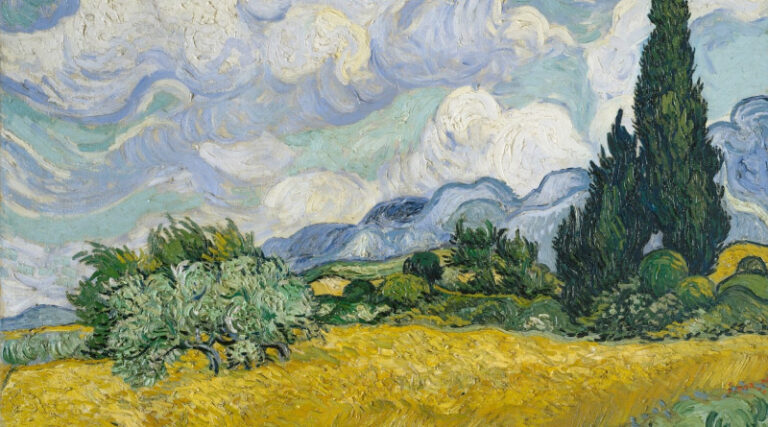Isaiah 6:9- 10, “…hearing, but do not understand;…seeing, but do not perceive.”
In my Sower and the Seed post, I explained that “Christ used parables to teach His disciples (and us) for several reasons. First, parables were a means to reveal truths to those open to receiving them and conceal truths from those indifferent, skeptical, or hostile. Second, to fulfill Prophecy, such as Isaiah 6:9- 10, “…hearing, but do not understand;…seeing, but do not perceive.” Third, to communicate the mysteries and principles of the Kingdom of Heaven in a form that required reflection and contemplation. Fourth, to provoke more profound thought and self-examination and challenge listeners to think beyond the surface to engage with the spiritual truths conveyed. And finally, fifth, to differentiate between those with genuine spiritual interest and those who are superficial in their engagement with Jesus’ teachings.
What is particularly interesting about the Parables is that only the four Gospels, Matthew, Mark, Luke, and John, record Christ’s activities and interactions while He was on earth. During that time, He interacted with various individuals, from lepers to heads of state, but His recorded teaching ministry to the 12 Apostles is limited to the Parables. Other exhortations, such as the Sermon on the Mount, were for broader audiences, but the Parables were specific to the Apostles and thus are exceptional in their own right.
There are 38 Parables in the New Testament. The following is an index by their commonly known names, the passages where they can be found, and a quick summary to what they refer. Lord willing, I will continue this study of the various parables over the following weeks. Initially, however, I thought presenting a big-picture survey as a foundational reference would be helpful.
As such, here are the Parables:
1. The Parable of the Sower
– Verses: Matthew 13:3-23; Mark 4:3-25; Luke 8:5-18
– Summary: This parable emphasizes the various responses to the gospel message based on the condition of human hearts.
2. The Parable of the Wheat and the Tares
– Verses: Matthew 13:24-30, 36-43
– Summary: This parable teaches about the coexistence of believers and unbelievers in the world until the final judgment.
3. The Parable of the Mustard Seed
– Verses: Matthew 13:31-32; Mark 4:30-32; Luke 13:18-19
– Summary: It illustrates the kingdom of God starting small but growing into something substantial and far-reaching.
4. The Parable of the Yeast (Leaven)
– Verses: Matthew 13:33; Luke 13:20-21
– Summary: This parable signifies the pervasive and transformative power of false doctrines to perverse the gospel in the world.
5. The Parable of the Hidden Treasure
– Verses: Matthew 13:44
– Summary: It shows the immense value of the kingdom of heaven, which is worth sacrificing everything to gain.
6. The Parable of the Pearl
– Verses: Matthew 13:45-46
– Summary: Similar to the Hidden Treasure, this parable highlights the incomparable worth of the kingdom of heaven.
7. The Parable of the Net
– Verses: Matthew 13:47-50
– Summary: This parable depicts the final judgment, where the righteous and the wicked will be separated.
8. The Parable of the Unforgiving Servant
– Verses: Matthew 18:23-35
– Summary: It underscores the necessity of forgiveness, as those forgiven by God must also forgive others.
9. The Parable of the Workers in the Vineyard
– Verses: Matthew 20:1-16
– Summary: It teaches about God’s generosity and sovereignty in dispensing grace.
10. The Parable of the Two Sons
– Verses: Matthew 21:28-32
– Summary: This parable illustrates true obedience to God through actions rather than mere words.
11. The Parable of the Tenants
– Verses: Matthew 21:33-46; Mark 12:1-12; Luke 20:9-19
– Summary: It signifies God’s judgment against Israel’s leaders who rejected His prophets and His Son.
12. The Parable of the Wedding Feast
– Verses: Matthew 22:1-14
– Summary: This parable emphasizes the invitation to the kingdom of heaven and the necessity of responding appropriately.
13. The Parable of the Fig Tree
– Verses: Matthew 24:32-35; Mark 13:28-31; Luke 21:29-31
– Summary: It encourages readiness and awareness of the signs of Christ’s return.
14. The Parable of the Ten Virgins
– Verses: Matthew 25:1-13
– Summary: This parable stresses the importance of being prepared for Christ’s second coming.
15. The Parable of the Talents
– Verses: Matthew 25:14-30
– Summary: It teaches about faithful stewardship and using God-given resources for His kingdom.
16. The Parable of the Sheep and the Goats
– Verses: Matthew 25:31-46
– Summary: This parable describes the final judgment and the separation of the righteous from the wicked based on their actions.
17. The Parable of the Growing Seed
– Verses: Mark 4:26-29
– Summary: It illustrates the mysterious and sovereign work of God in the growth of His kingdom.
18. The Parable of the Watchful Servants
– Verses: Mark 13:33-37; Luke 12:35-40
– Summary: This parable emphasizes the necessity of vigilance and readiness for Christ’s return.
19. The Parable of the Wise and Foolish Builders
– Verses: Matthew 7:24-27; Luke 6:47-49
– Summary: It teaches that obedience to Christ’s teachings is the foundation for a spiritually secure life.
20. The Parable of the Rich Fool
– Verses: Luke 12:16-21
– Summary: It warns against greed and the folly of hoarding earthly possessions without thought for one’s spiritual state.
21. The Parable of the Faithful Servant
– Verses: Matthew 24:45-51; Luke 12:42-48
– Summary: This parable emphasizes faithfulness and accountability in serving God
22. The Parable of the Barren Fig Tree
– Verses: Luke 13:6-9
– Summary: It warns of the consequences of not bearing fruit in keeping with repentance.
23. The Parable of the Great Banquet
– Verses: Luke 14:15-24
– Summary: This parable depicts God’s invitation to salvation and the varying responses of people to that invitation.
24. The Parable of the Lost Sheep
– Verses: Matthew 18:12-14; Luke 15:3-7
– Summary: It illustrates God’s joy in the repentance of a sinner.
25. The Parable of the Lost Coin
– Verses: Luke 15:8-10
– Summary: Similar to the Lost Sheep, it shows the value and joy of recovering what was lost.
26. The Parable of the Prodigal Son
– Verses: Luke 15:11-32
– Summary: This parable highlights God’s grace and forgiveness for repentant sinners.
27. The Parable of the Shrewd Manager
– Verses: Luke 16:1-15
– Summary: It teaches about the wise and faithful use of resources in light of eternal priorities.
28. The Parable of the Rich Man and Lazarus
– Verses: Luke 16:19-31
– Summary: This parable emphasizes the reality of eternal destinies and the need for repentance.
29. The Parable of the Persistent Widow (The Unjust Judge)
– Verses: Luke 18:1-8
– Summary: It encourages persistent prayer and faith in God’s justice.
30. The Parable of the Pharisee and the Tax Collector
– Verses: Luke 18:9-14
– Summary: This parable contrasts self-righteousness with humility and true repentance.
31. The Parable of the Ten Minas
– Verses: Luke 19:11-27
– Summary: Similar to the Talents, it emphasizes faithful stewardship and accountability before God.
32. The Parable of the Tenant Farmers
– Verses: Matthew 21:33-45; Mark 12:1-12; Luke 20:9-18
– Summary: This parable signifies God’s judgment against Israel’s leaders who rejected His prophets and His Son.
33. The Parable of the Two Debtors
– Verses: Luke 7:41-43
– Summary: It illustrates the correlation between forgiveness and love.
34. The Parable of the Good Samaritan
– Verses: Luke 10:25-37
– Summary: It teaches about true neighborly love and compassion beyond social and ethnic boundaries.
35. The Parable of the Friend at Midnight
– Verses: Luke 11:5-8
– Summary: It encourages persistent prayer and reliance on God’s provision.
36. The Parable of the Unmerciful Servant
– Verses: Matthew 18:23-35
– Summary: It underscores the necessity of forgiveness, as those forgiven by God must also forgive others.
37. The Parable of the Watchful Servants
– Verses: Luke 12:35-48
– Summary: This parable emphasizes readiness and vigilance for Christ’s return.
38. The Parable of the Wise Manager
– Verses: Luke 12:42-48
– Summary: It underscores the importance of faithful and wise stewardship of the responsibilities given by God.









